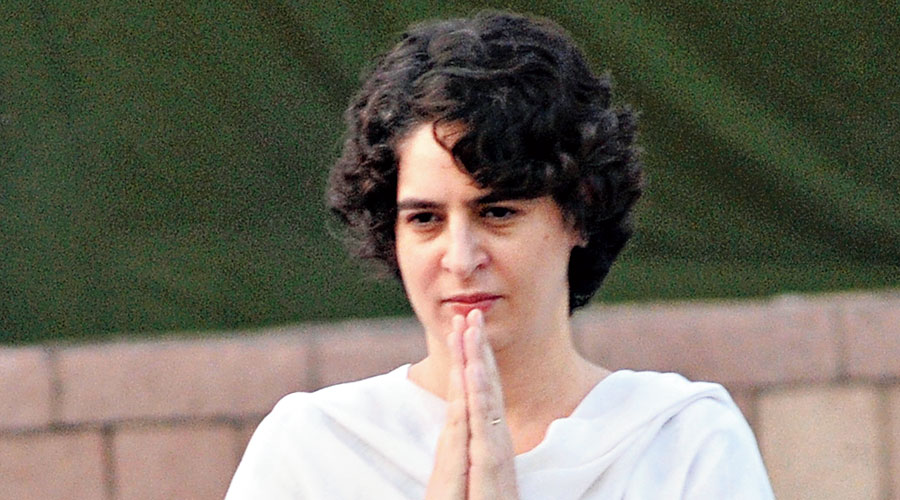The Congress leadership’s polite message to dissenters not to weaken the fight against the BJP at this critical juncture is actually a camouflaged warning against crossing the line, while astute political measures were also taken to check escalation of unrest in the party.
The message was firmly delivered by Priyanka Gandhi who is on a tour of Assam.
Priyanka, in response to a question about G-23 (the group of dissenters) and confusion about alliance with the ISF in Bengal, said: “We may not agree 100 per cent with what our alliance partners believe. But we are together in this fight. Every worker of the Congress understands this deeply ideological battle. Whoever stands with us in this fight, stands with us.”
Soon after, party spokesperson Abhishek Singhvi in Delhi said: “Each valued colleagues should join us to fight against the BJP, not to weaken the fight against the BJP. Every Congress leader should unite.”
On a question about Bengal alliance, Singhvi said: “The Congress got the seats it bargained for. A large secular front has been created to fight the BJP.”
Singhvi added: “The BJP has the gall to call others communal. The BJP which pursues gunda politics claims to be secular and accuses others of communalism.”
Jammu & Kashmir Congress chief Ghulam Ahmed Mir also rushed to Delhi to discuss with the high command the remarks of veteran leader Ghulam Nabi Azad that were not received well in the state.
Mir said the Jammu gathering of dissenters was avoidable, but there still was hope because they spoke against the BJP. But the hopes were dashed later as Azad praised the Prime Minister, he added.
The BJP link, injected into the discourse by Azad’s praise of Modi, and Priyanka’s message appeared to have created some impact on the dissenters.
Anand Sharma, one of the key members of G-23 who publicly questioned the Bengal alliance, on Tuesday said: “We wish the Congress candidates the best and we will campaign in poll-bound states if we are asked to.”
“We want to strengthen the party, we are for united Congress. We don’t want anything which will weaken the party.” The G-23 has indisputably depleted and now barely 10 leaders are inclined to pursue the agenda.
While Veerappa Moily, one of the G-23 members, publicly stated that he was no more part of it, Prithviraj Chavan also dissociated with the group by accepting the assignment for Assam as the screening committee chairman.
Shashi Tharoor and Jitin Prasada too have dissociated from the group and are working in the Assembly elections.Congress president Sonia Gandhi on Tuesday demolished the charge that Rahul Gandhi’s coterie was running the show despite not being in charge, appointing veteran Digvijaya Singh as the head of the screening committee for Tamil Nadu and J.P. Agarawal for the committee on Bengal. None of these leaders is known to be close to Rahul and were both feeling slighted for the last couple of years.
Another sulking veteran from Goa, Francisco Sardinha, was included in the screening committee for Tamil Nadu. The party is carefully working on a plan to isolate the key members of G-23.
While Azad does have some clout in Jammu & Kashmir, the only other member whose exit will have a significant bearing on the party’s fortunes is former chief minister Bhupinder Singh Hooda. While others like Anand Sharma, Kapil Sibal and Manish Tewari are valuable assets for the party, their capacity to inflict electoral damages is minimal.











